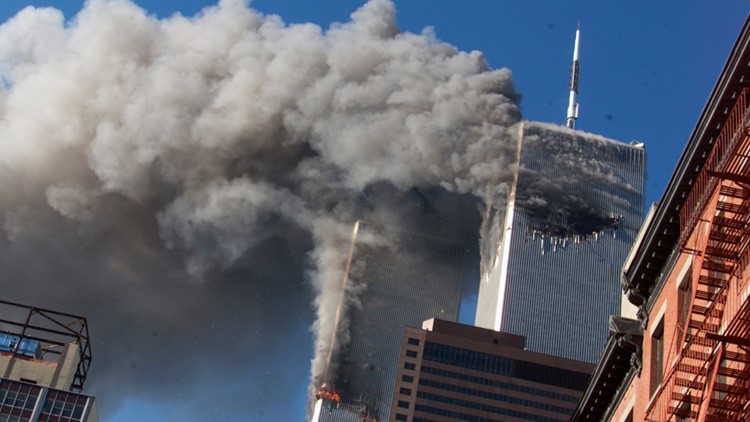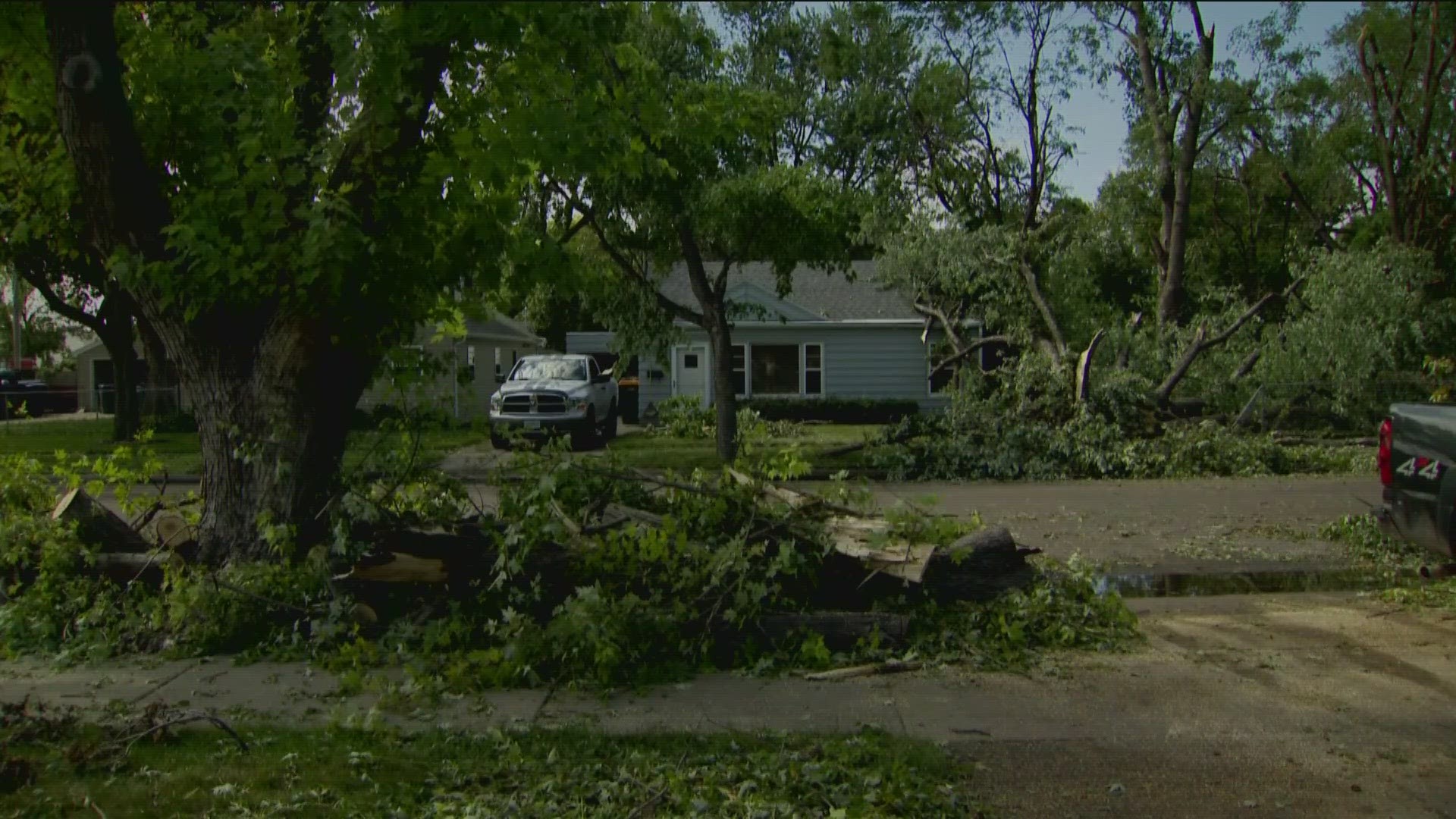MINNEAPOLIS — Scott Meyer arrived in New York City around 3 a.m. on the early morning of September 11, 2001, hoping to catch a few hours of sleep at his hotel in Midtown Manhattan ahead of one of the most important days of his athletic career.
The All-American goaltender from St. Cloud State, just five months removed from an NCAA Tournament appearance with the Huskies, came to the Big Apple seeking a roster spot with the NHL's New York Rangers. After signing with the franchise as a free agent out of college, he spent the summer and fall in rookie camp, whipping himself into shape for the start of full training camp on September 11 at the iconic Madison Square Garden.

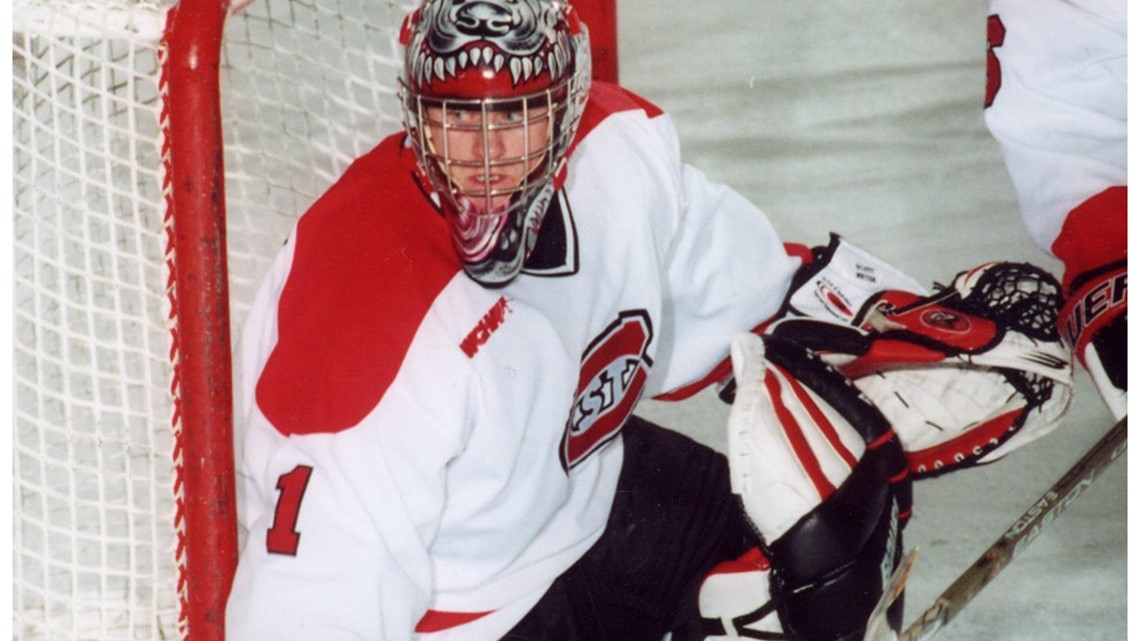
He needed a solid night of sleep before camp opened.
By sunrise, roaring sirens interrupted his rest.
"Just kind of figured that was Manhattan," Meyer said, recalling that he had no knowledge of what prompted the emergency response.
Soon enough, his girlfriend -- now wife, Missy -- called with an urgent demand.
Turn on your TV.
"That," Meyer said, "is when I saw the first tower had been hit."
Details remained unclear, but Meyer felt uncomfortable on the 12th floor of his tall hotel, just a few miles away from the site of the World Trade Center. Before evacuating his building, he quickly hopped in the shower, during which time another plane slammed into the second tower. He got dressed, left his room, and rushed toward the elevator, where he encountered another hotel guest with a shocked look on her face. Meyer then headed toward Madison Square Garden on foot, deeming the area a safe zone because he knew he could at least gather with familiar teammates there.

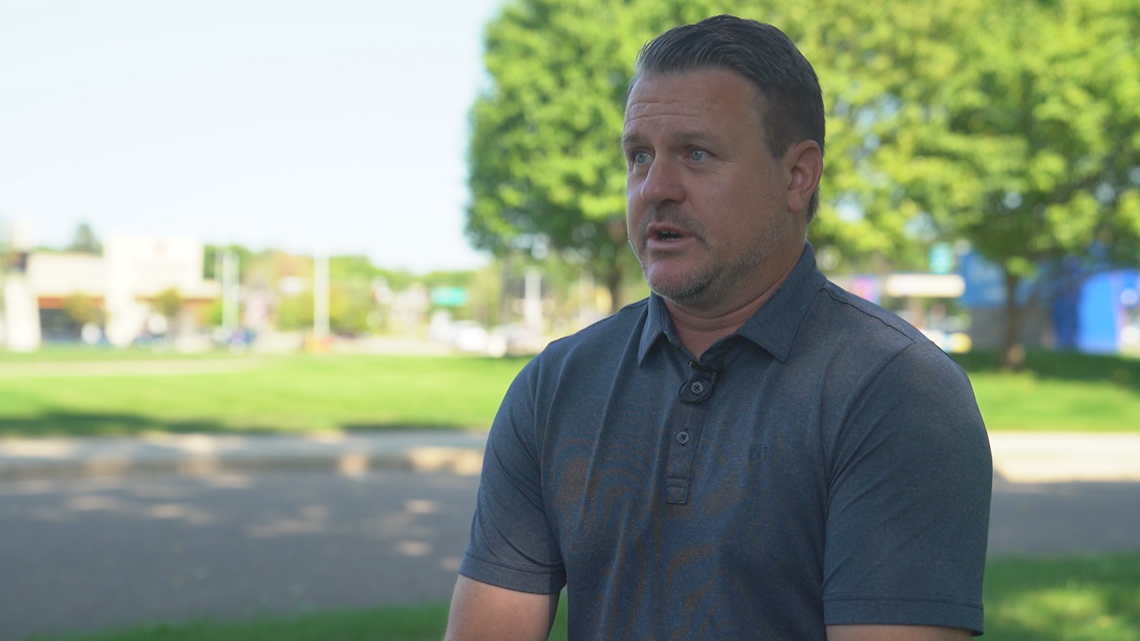
"I didn't know what to do. I started walking west toward Madison Square Garden, but every street south, you could see the towers were burning. At one point I just stopped and started walking south, like a lot of people, in amazement of what was going on," Meyer said. "Cell phones wouldn't work, and there were a bunch of people crying. You obviously understand, so many people had family and friends they knew who were in those towers."
The South Tower fell during his walk to the Garden.
"I didn't see it," Meyer said, "but you could feel it."
The sights and sounds have haunted Meyer, now a realtor in the Twin Cities, for the past 20 years.
"There are still some confusing feelings," he said. "It does make you wonder how things have changed."
RELATED: 9/11 through letters
"THIS WEEK HAS BEEN HARD"
St. Paul native David Kansas, now the president of American Public Media, worked as a journalist in New York City back in 2001. On the morning of September 11, he heard a jet fly over his apartment about a half-mile north of the World Trade Center, before it collided with the first tower around 8:46 a.m. EST.
"Journalists, we run to where things are going. I decided I had to go down there," Kansas said. "I got on the elevator and made my way to the World Trade Center, walking as quickly as I could."
In the roughly sixteen minutes that elapsed between the first and second plane strikes, Kansas observed a bizarre scene unfolding on the streets of Lower Manhattan. Although smoke filled the air from the North Tower, many New Yorkers remained confused, some thinking it may have been an accident. As he rushed toward the destruction, Kansas looked up to see clear blue skies, with wind blowing slightly to the southeast, watching in amazement as people forged ahead with mundane tasks. Some walked to work, coffee in hand. Others picked up garbage.
"Like nothing had really happened," Kansas said. "It was a really weird moment between times."
Kansas, meanwhile, talked with his brother on the phone on his way to the World Trade Center, where he could see people falling from the North Tower. Their conversation continued into 9:02 a.m. EST.
"Then a huge plume of fire blew through the South Tower, which was the second plane," Kansas said. "I ran through a building to get to safety. And, at that moment, I knew it wasn't an accident -- that we were under attack."
Kansas described a mix of confusion and sadness in the hours that followed. He informed his family that he was safe, but he wondered about many friends who might be in danger. He tried to track some of them down, although with poor cell phone coverage, he reverted to the now-archaic instant messenger as his primary form of communication.
"There was also an effort to evacuate the neighborhood, but I thought, 'Where was safe? Where was safe?'" he said. "So, I stayed put, hunkered down, and kind of rode it out."
Stuck in his apartment, Kansas put his thoughts into words. An acquaintance from the Star Tribune in his home state, who had covered Kansas during his high school football career in St. Paul, called him that day and asked if he would write an 800-word article for the newspaper's special edition.
Working on a quick, two-hour deadline, Kansas penned a moment-by-moment account of the September 11th attacks from his perspective in Lower Manhattan. The story ran the next morning on Page S7 under the headline, "'I Will Never Forget The Sight.'"

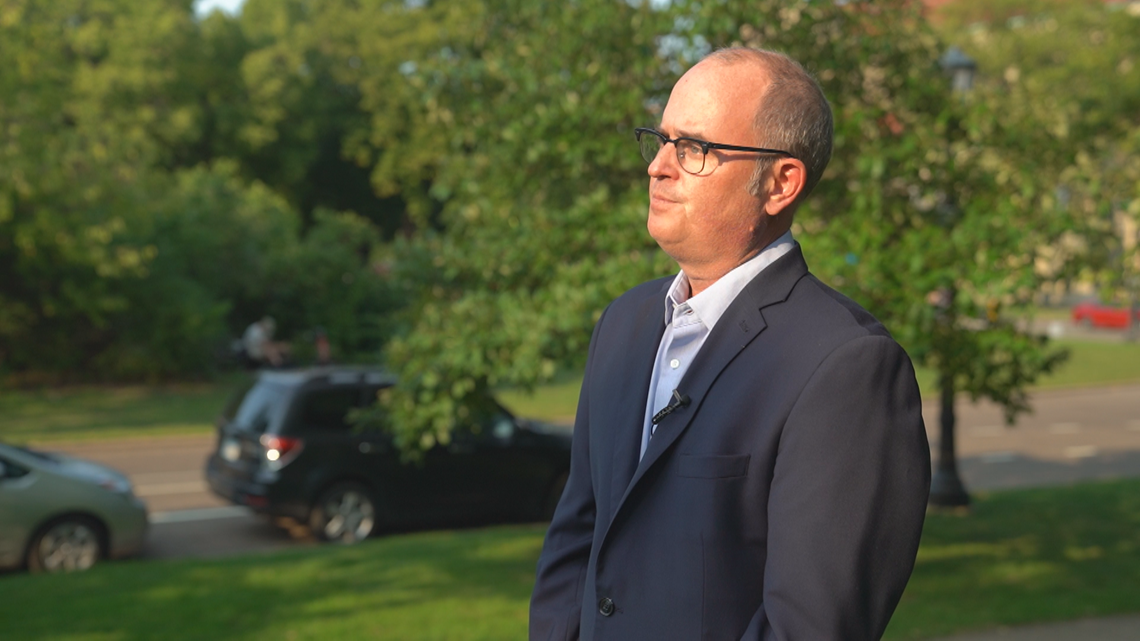
Noting that he had also experienced the 1993 World Trade Center bombing from his Wall Street Journal offices across the street, Kansas told readers in the Twin Cities that he felt "numbness" and "helplessness" as the towers collapsed to the ground. He had no real sense of the death toll, knowing only that "given the density of people, the people on the planes and the collapse of the building it's hard to fathom."
"New York is a stern place with resolute people. What I saw Tuesday only reinforced that feeling," Kansas wrote in his final paragraph. "But I don't think any of us have any idea what the coming days will bring."
He would soon learn that a friend and former co-worker, who was employed at Cantor Fitzgerald's headquarters in the North Tower, had died along with more than 600 fellow employees at the firm.
Kansas suffered from nightmares in the years after the 9/11 attacks, although he said they eventually passed with time.
Now comes Saturday's twentieth anniversary.
"This week has been hard," Kansas said. "Just remembering it again, remembering friends who had struggled through different impacts of it, just remembering how terrible that time was to be in Lower Manhattan. To see people falling from the towers, the flames -- and a few days later, the fighter jets and tanks on your street -- that all coming back has been difficult."
On Friday, a day before the 20-year mark, Kansas dug up the old Star Tribune article that ran under his byline on September 12, 2001, and read the words with his two young children.
"I just tried to answer questions for them," he said. "Trying to explain the complexity of the world in the context of what happened that day, which is still very complex."
"IT WAS SOMETHING ELSE"
Scott Meyer had been a young NHL hopeful back in September 2001, just a recent St. Cloud State graduate thrilled at the opportunity to potentially play for the New York Rangers. In the days after September 11, the Rangers moved their training camp from Madison Square Garden to a team facility in Rye, New York.
"We were one of the first groups to get out of Manhattan by police escort," Meyer said. "Definitely left a cloud over a lot of things that went on the rest of the year."
Although New York cut Meyer from the squad, he reported to the team's minor league affiliate in Hartford and followed the Rangers' 2001-2002 season closely. A month after the attacks, before the Rangers' home opener against the Buffalo Sabres in early October 2001, captain Mark Messier wore the FDNY helmet of Chief Raymond Downey, who died when the towers collapsed.
Twenty years later, Meyer still remembers that moment distinctly, and he often wonders what might have happened had fate charted a different course for the Rangers' organization at the start of training camp on September 11. The players were supposed to stay at a hotel connected to the World Trade Center, but due to a scheduling hiccup involving a double-booking, the team moved them all to a Midtown Manhattan hotel near the Empire State Building.
As Meyer tells the story, the players knew nothing of the original hotel arrangements until they watched the second tower fall on television, prompting a staff member to remark that they would have been right there, had the double-booking not occurred.
"Looking back at how much different your day might have been if that came to fruition... how your life might have changed," Meyer said. "Keep the memory of the families and first responders in your hearts. It was something else, just to be where I was, but I can only imagine what they had to go through. And how it changed their lives."


